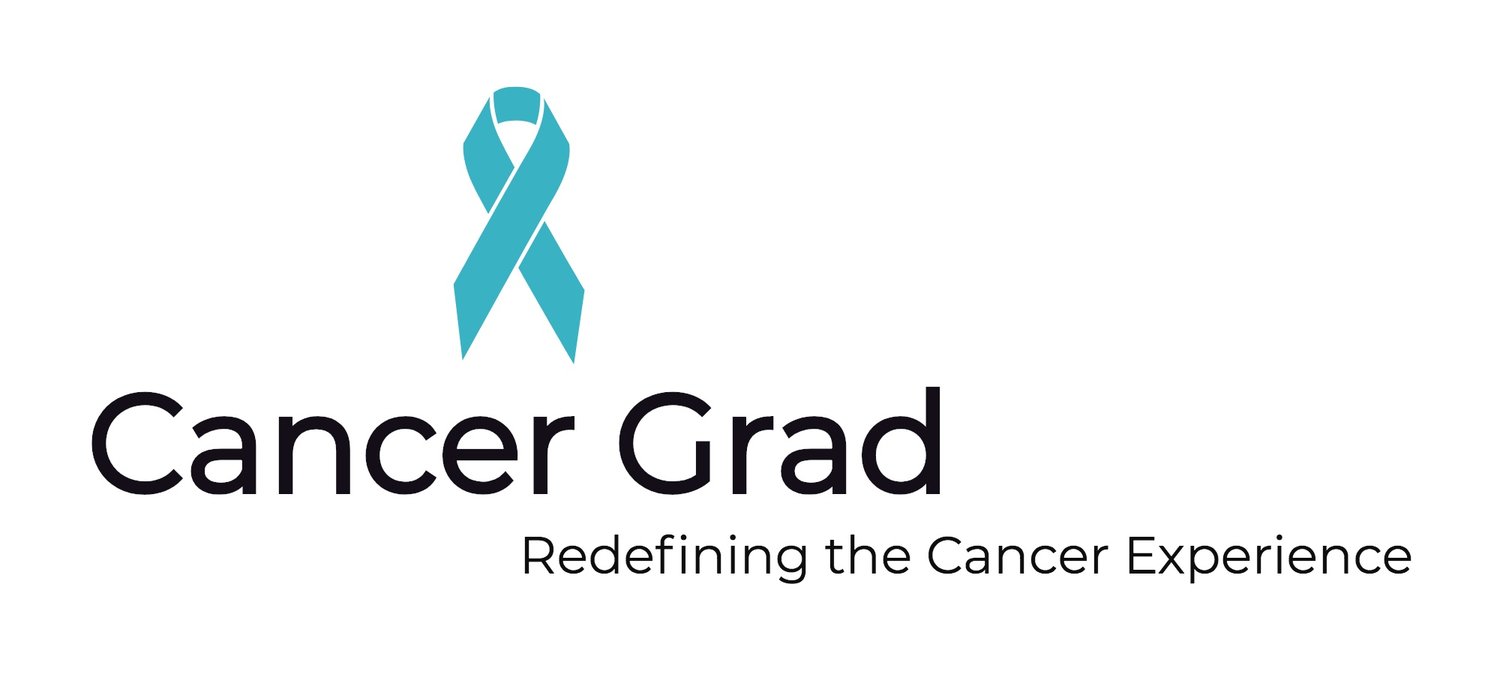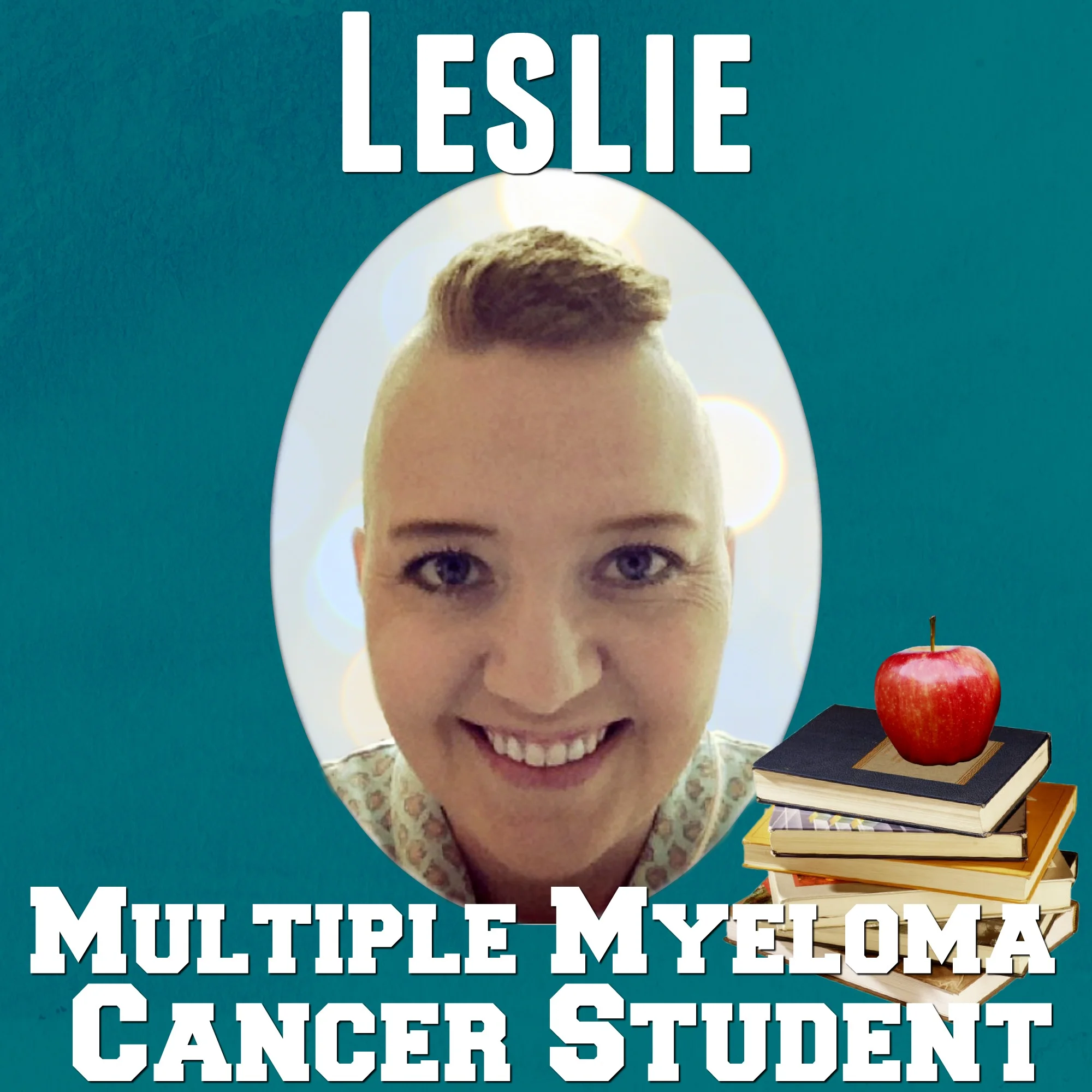Meet Multiple Myeloma Cancer Student- Leslie Wooten
“I still got some supplement and diet suggestions and stories about Uncle Bob’s third cousin who had a type of cancer not even related to myeloma but I’m sure this stopped some of the stories.”
Name: Leslie Wooten
Age at Enrollment: 42
Major: Multiple Myeloma, Stage III
“My sister stayed with me and provided a lot of comic relief. My faith and my family were essential to my recovery.”
What were the primary symptoms you experienced prior to diagnosis? I had very few. I moved to a new city and got a new health plan. I was meeting with my new physician for the first time and he ordered routine blood work. I had been tired but I attributed that to my move to a new state and starting a new job. The blood work revealed that I was extremely anemic. My physician sent me to a hematologist to figure out why. After a few months of trying to figure it out, my hematologist became my oncologist.
Courses completed: I found out that I had MM on the second day of the spring semester and immediately I went on induction chemo. During finals week, I had stem cells harvested. A couple of weeks later I had an autologous stem cell transplant. I was kept in the bone marrow transplant inpatient clinic for almost four weeks. I returned to work for the fall semester. I didn't miss any work at all. But as soon as the fall semester started back, I was placed on maintenance chemo. I am about to finish my 30th round of maintenance. That makes it sound like I had it easy but it definitely was not and has not been.
“Be your own advocate. Know your own disease. Join a group on Facebook of other patients. They know what’s up. They can answer all the questions you have and they will do it quickly. We remember being in the early stages.”
What was your hardest moment (or moments) and how did you get through it/them? It was difficult being in the hospital for so long and unable to leave, unable to breathe fresh air. A few days after the high dose chemo, I hit rock bottom. My immune system was gone, I was so sick. I was as close to death as I could possibly be without actually dying. In that moment, I thought of my daughter. She was counting on me. She needed me to pull through.
Another tough moment was the first time I looked at myself in the mirror and I had no hair. I have always cared about my appearance. That was the first time that I truly saw a cancer patient.
My sister stayed with me and provided a lot of comic relief. My faith and my family were essential to my recovery.
Any helpful (tangible) tips or tricks you discovered for dealing with your symptoms and/or cancer? Old fashioned lemon drops are the best thing in the world for nausea.
In order to maintain my sanity, I sent out a mass email to all my friends asking them to kindly not send me any tips, diets, supplements, or stories about other people they've heard about with cancer and how they outlived what the doctors told them. I asked for their support and their prayers. I was straightforward with the fact that this was difficult enough with all of the decisions I had to make and I had an oncologist and a specialist in two different locations. They could rest assured that I was being careful about my own health. I still got some supplement and diet suggestions and stories about Uncle Bob's third cousin who had a type of cancer not even related to myeloma but I'm sure this stopped some of the stories.
Be your own advocate. Know your own disease. Join a group on Facebook of other patients. They know what's up. They can answer all the questions you have and they will do it quickly. We remember being in the early stages.
Lastly, if you have a long hospital stay like I did, bring candid pictures of family, friends, and pets. Put them all around you. That helps a lot.
“I was as close to death as I could possibly be without actually dying. In that moment, I thought of my daughter. She was counting on me. She needed me to pull through.”
How did you find joy during this experience? I am a naturally "glass is half full" type person. I found out that there were a lot of people who cared about me that I didn't even realize. I grabbed and held on to moments when I felt ok. I got a journal and wrote in it things I was thankful for. I even wrote a song about oatmeal. I began to draw and illustrate again. That journal is priceless to me now. You find joy in the smallest things when you don't have much to be joyful about.
Did you learn anything about yourself? If so, what was it? I'm not perfect and I don't have to be perfect. Some things actually don't have to be done by me and done right this minute. Some things that I thought were so important really aren't anymore. I wasted a lot of time in my life worrying about so many unimportant things. A few extra pounds? What difference does that make anymore? When you are given a timeline as to how many years you are expected to live and that number is single digits, you realize that there are very few truly important things.
Since my diagnosis and transplant, I have had lasting effects that I suppose will continue. I have chronic pain and fatigue. The bone pain goes with the territory of myeloma. But I deal with it as best as I can. Every semester, I tell my story of my educational failures and perseverance that eventually led to my PhD. And now I add to my story my diagnosis and that I literally get up every day and stand in front of them and teach while I am on chemo and am fighting cancer. I encourage them to find their passion as I have found mine. Teaching is what I was meant to do. I will reach as many students as I can before they enter nursing school or other professional school and teach them that they indeed can do it against whatever odds they face.






